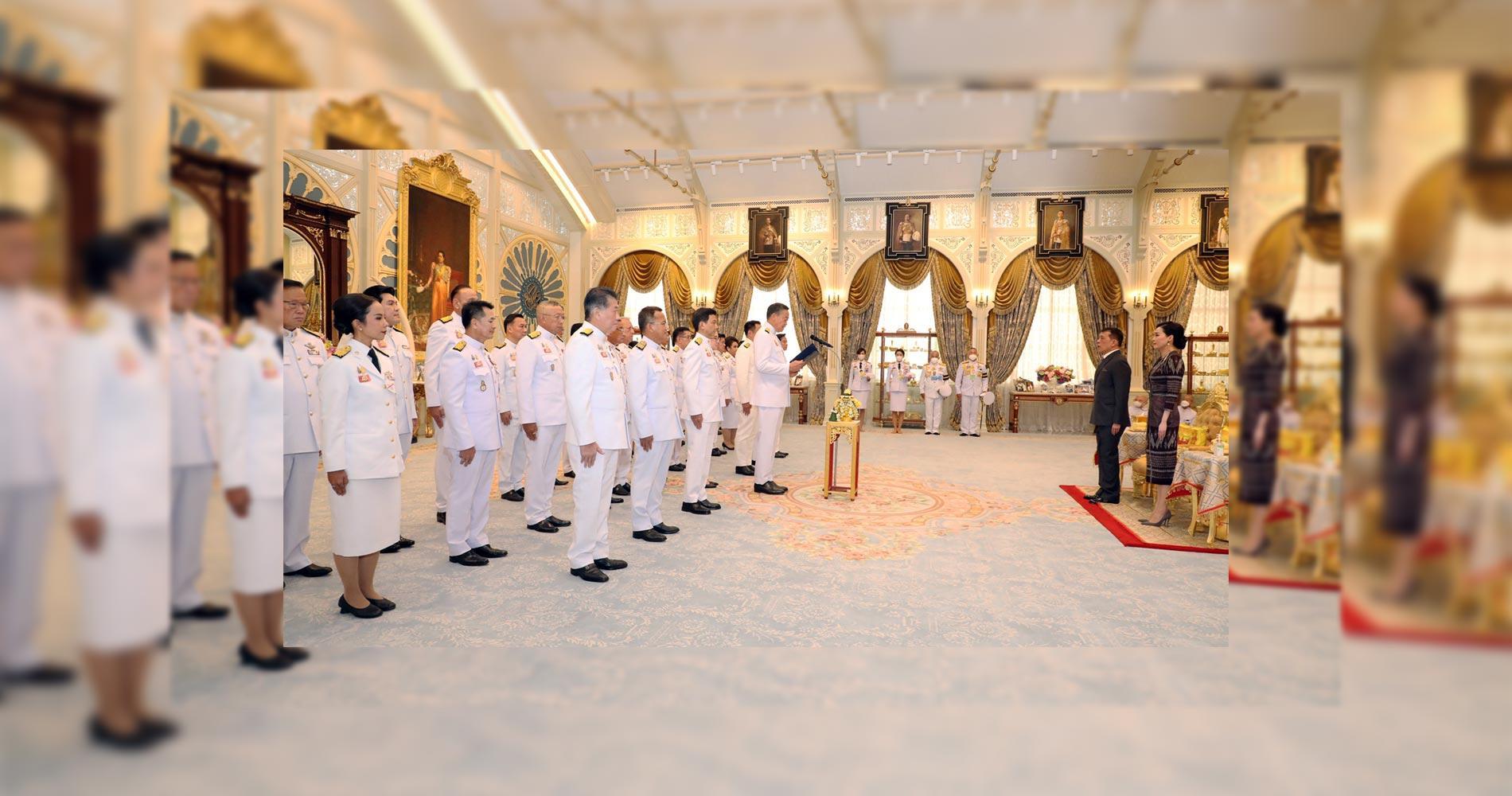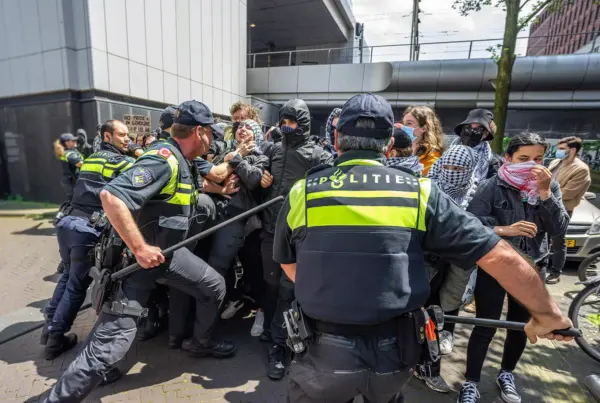Throughout the summer of 2023 Thailand has been struggling to form a new government. The reform-oriented Move Forward Party, the election winner, did not receive the necessary votes in the House of Representatives. The instalment of Prime Minister Srettha Thavisin has made clear that the power of the land remains with the King and the military and not with the Thai voter.
David Deegan, 7 September 2023
Spanish version
Srettha Thavisin has become the new Prime Minister of Thailand on 23 August. Thavisin, a wealthy real estate developer, leads the Pheu Thai Party, but the road to success has been complex, and raises questions about Thailand’s attitudes towards democracy and the monarchy.
The Kingdom of Thailand has a special relationship with the US. It has been a treaty ally since 1954. The only treaty partner of the US in mainland Southeast Asia. Since 2003 Thailand is a “major non-NATO ally” of the US.The Royal Thai Armed Forces have also made significant purchases of US armaments and their military regularly cooperate. The US-Thai security relationship includes military education, military exercises, and regular troop engagements. Units from the US and Thailand will take part in their first Enduring Partners Engagement from 11-21 September 2023 at the Royal Thai Air Force Base in Thailand.
Back in May, Pita Limjaroenrat, the reform-oriented leader of the Move Forward Party (MFP) won the parliamentary elections, but with only a slim majority. Seven other opposition parties joined forces with MFP to form a coalition with the intention of creating a majority government that would enable Limjaroenrat to be put forward as a candidate for Prime Minister. Thailand operates with two houses of Parliament; the House of Representatives and the Senate. The formation of the coalition gave Limjaroenrat a stable majority in House of Representatives but in order to elect a Prime Minister and form a government, a party or coalition needs to win a majority of 375 seats in both the parliamentary houses of parliament – currently 749 seats – to elect a prime minister and form a government.
The majority of Senators were appointed by the military following a coup in 2014 which has resulted in the country being ruled since then by a military junta led by ex-general Prayut Chan-o-cha. The strong military-oriented presence in the Senate meant that the MFP received only 324 votes out of the 375 needed for a majority.
In July, Limjaroenat should have taken part in a second round of elections which might have then seen him achieve the required majority, but this was prevented on Wednesday 19 July by the Senate and the Chamber of Deputies who voted in favor of the motion put forward by Wan Muhamad Noor Matha, the Speaker of the House of Representatives that Limjaroenat should not be allowed to run for election again because of an ongoing investigation by the Thailand’s Constitutional Court.
Despite there being no precedent for preventing a candidate from taking part in a second round of elections, the justification put forward by the Constitutional Court was that Limjaroenat was being investigated for allegedly holding shares in a media company during his candidacy, which is prohibited in Thailand. According to Limjaroenat, the media company in question, whose shares come from his father’s estate, had long been closed. The decision immediately sparked protests and demonstrations in Bangkok, but to no avail.
The Thai military has a long track record of removing democratically elected governments and seizing power during moments of instability. Thailand has experienced a dozen successful coups since 1932, including two in the past 17 years. Over the last twenty years Thailand’s Constitutional Court has repeatedly ruled in favor of the military, the monarchy, and influential members of Thai elite society, which has seen the dissolution of several parties who would have challenged the conservative establishment.
In 2019 the Constitutional Court had expelled and banned the Future Forward Party (FFP) – the predecessor party of the MFP – from parliament for allegedly violating the electoral law. The FFP had campaigned for an amendment to the lèse-majesté law (which relates to defamation of the monarchy). It seems likely that Limjaroenat and the MFP were perceived as a threat because they too had promised to amend lèse-majesté law.
Under the law of lèse-majesté, anyone who “defames” the monarchy faces 15 years in jail. According to the constitution, the King (Maha Vajiralongkorn) and other members of the royal family are deemed to be officially above politics and “reverently revered”. Limjaroenat’s party comprises many young voters who are part of pro-democracy movements who have openly criticised the monarchy and consequently been imprisoned. It has been suggested that by announcing his intent to amend lèse-majesté in his reform plans, Limjaroenat had doomed his candidacy from the start, but tackling lèse-majesté was not the only bold stance of the MFP.
They also campaign for the decentralization of power, the abolition of conscription, reforms that address the current monopolies in the alcoholic beverage and energy sectors, and a significant rise to the minimum wage, all of which face resistance from the conservative, business-led elite and the military.
The Pheu Thai party, the MFP’s most important coalition partner, put forward Thavisin as a candidate. Despite being Pheu Thai having been part of the original coalition it was thought that the party would present less of a threat to the conservative Thai establishment because they did not put forward an agenda to reform either the monarchy or the military.
However, on the 21st August, just two days ahead of the parliamentary vote, Pheu Thai Party announced that the Palang Pracharath Party (PPRP), would be included in its coalition. The PPRP was the largest military-backed party in the 2019-2023 coalition government led by Prayut Chan-o-cha, which was defeated by MFP in May. Pheu Thai’s invitation to PPRP alienated several supporters, who view them as a political enemy.
The leader of the Pheu Thai party, Chonlanan Srikaev defended their inclusion, stating that “The decision to form this government is based on our duty to the public, which is facing difficulties and serious problems”. But as PPRP has 40 seats in parliament, the move was perceived as ensuring Srettha Thavisin would achieve the majority required for him to be elected Prime Minister.
On 23rd August, having achieved a comfortable majority with 482 votes out of a possible 747, Thavisin was endorsed by the King as Thailand’s Prime Minister. The fact that the Biden Administration has not criticized Thavisin appointment is conspicuous by its absence.
The Thai public now face being governed by a coalition which is unlikely to be significantly different to the one they believed had been defeated earlier this year. A return to the status quo would suggest that the democratic reforms hoped for by younger Thai voters are unlikely to materialise, and imprisonment for any criticism of the monarchy will remain a constant threat.







